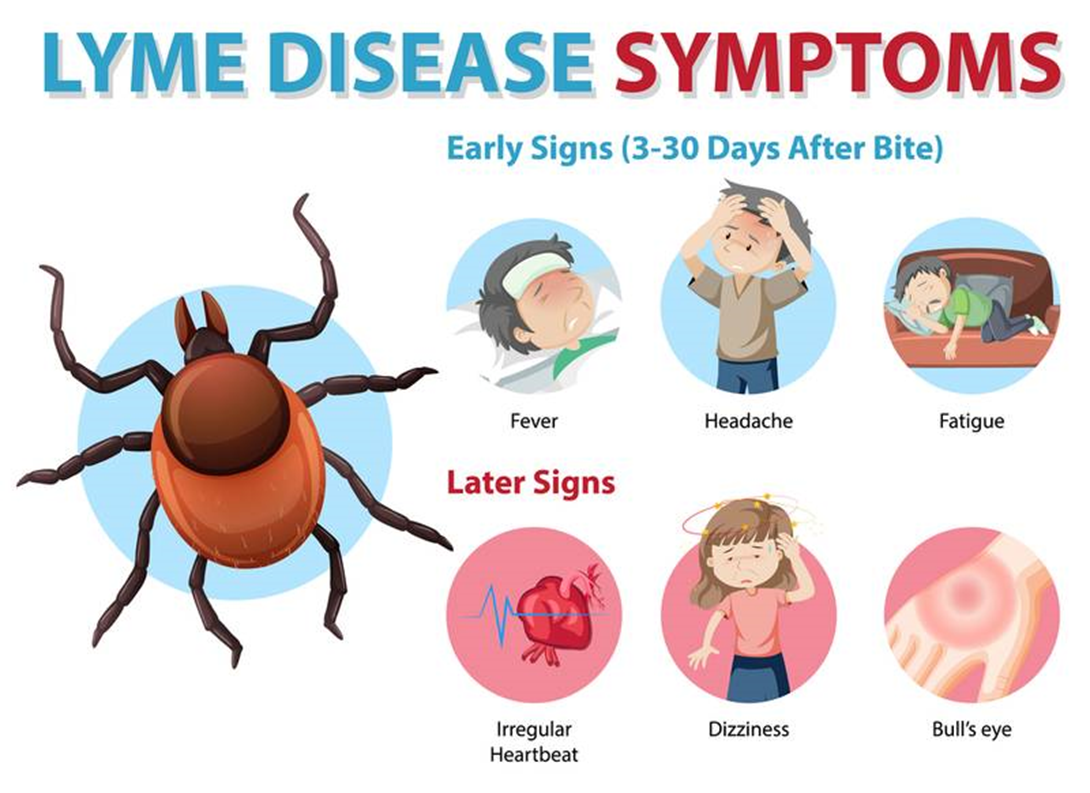A nurse working in an infectious disease clinic is caring for a client who has a new diagnosis of Lyme disease. Which of the following agencies is responsible for voluntarily reporting cases of this disease to the Centers for Disease Control and Prevention (CDC)?
Office of the Surgeon General.
State health department.
Hospital infection control department.
Local Red Cross chapter.
The Correct Answer is B
Choice A reason: The Office of the Surgeon General is not responsible for voluntarily reporting cases of Lyme disease to the CDC. The Office of the Surgeon General provides leadership and direction to the U.S. Public Health Service and oversees the operations of the U.S. Public Health Service Commissioned Corps.
Choice B reason: The state health department is responsible for voluntarily reporting cases of Lyme disease to the CDC. The state health department collects and analyzes data on reportable diseases, such as Lyme disease, and submits them to the CDC through the National Notifiable Diseases Surveillance System (NNDSS).

Choice C reason: The hospital infection control department is not responsible for voluntarily reporting cases of Lyme disease to the CDC. The hospital infection control department monitors and prevents nosocomial infections, or infections acquired in the hospital setting, and implements infection control policies and procedures.
Choice D reason: The local Red Cross chapter is not responsible for voluntarily reporting cases of Lyme disease to the CDC. The local Red Cross chapter provides humanitarian services, such as disaster relief, blood donation, health and safety education, and emergency communication.
Nursing Test Bank
Naxlex Comprehensive Predictor Exams
Related Questions
Correct Answer is B
Explanation
Choice A reason: This comment does not indicate rationalization, but rather a recognition of the consequences of obesity. The client may be expressing a need for help or motivation to change their lifestyle.
Choice B reason: This comment indicates rationalization, which is a defense mechanism that involves making excuses or justifying one's behavior or situation. The client may be avoiding personal responsibility or denying the possibility of change by blaming their obesity on their genes.
Choice C reason: This comment does not indicate rationalization, but rather a challenge or barrier that the client faces in achieving their health goals. The client may be acknowledging their weakness or seeking support to overcome their temptation.
Choice D reason: This comment does not indicate rationalization, but rather a projection or displacement of the client's negative feelings onto others. The client may be feeling insecure or rejected because of their obesity, and assuming that others share the same opinion.
Correct Answer is A
Explanation
Choice A reason: The best first step for a community health nurse is to connect directly with the people who are most affected by the issue. Meeting with community members allows the nurse to assess their concerns, gather information on how the playground is currently used, and explore what resources and willingness the residents have to participate in solutions. This approach promotes community engagement, empowerment, and ownership of the issue, which are critical to ensuring that any interventions are both sustainable and culturally appropriate. Without this initial dialogue, actions taken may not address the true barriers or may fail to gain community support.
Choice B reason: Partnering with city officials and community members to improve the playground condition is not the first action that the nurse should take. This is a tertiary intervention that can help to restore the playground to its optimal state, but it does not address the immediate issue of the garbage accumulation.
Choice C reason: Working with local businesses to sponsor more trash receptacles in the playground is not the first action that the nurse should take. This is a secondary intervention that can help to prevent the recurrence of the problem, but it does not address the immediate issue of the garbage accumulation.
Choice D reason: Engaging families to monitor trash buildup in the playground focuses on surveillance and maintenance, but this step requires prior discussion and buy-in from the community. Asking families to monitor the site without first understanding their concerns, availability, and willingness could lead to resistance or lack of participation. This is a useful strategy after community dialogue has occurred but not as the first step.
Whether you are a student looking to ace your exams or a practicing nurse seeking to enhance your expertise , our nursing education contents will empower you with the confidence and competence to make a difference in the lives of patients and become a respected leader in the healthcare field.
Visit Naxlex, invest in your future and unlock endless possibilities with our unparalleled nursing education contents today
Report Wrong Answer on the Current Question
Do you disagree with the answer? If yes, what is your expected answer? Explain.
Kindly be descriptive with the issue you are facing.
